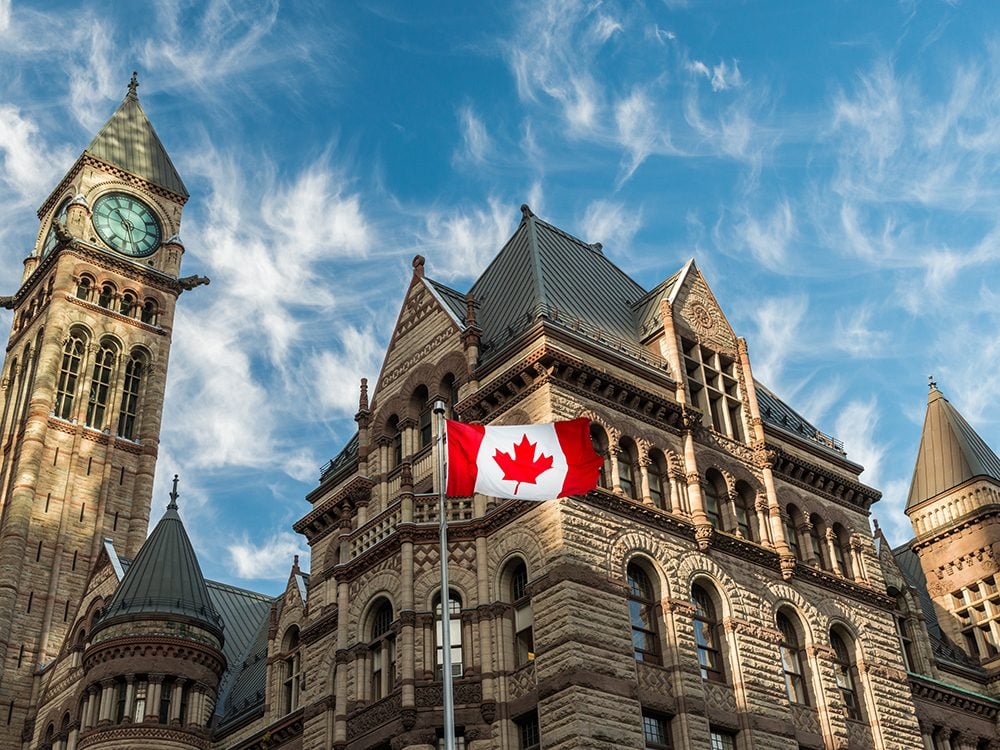
15 things I wish I’d known before moving to Canada
Last year, I moved to Canada from India as a permanent resident. Having previously lived in both England and the United States, I figured life in Canada would instantly feel cozy and familiar. How wrong I was! Moving to Canada—and acclimatizing to life in this land of genuinely polite and progressive people—involves so much more than getting a PR card. Here’s what I wish I’d known about living in Canada before I boarded the flight from Mumbai to Toronto.
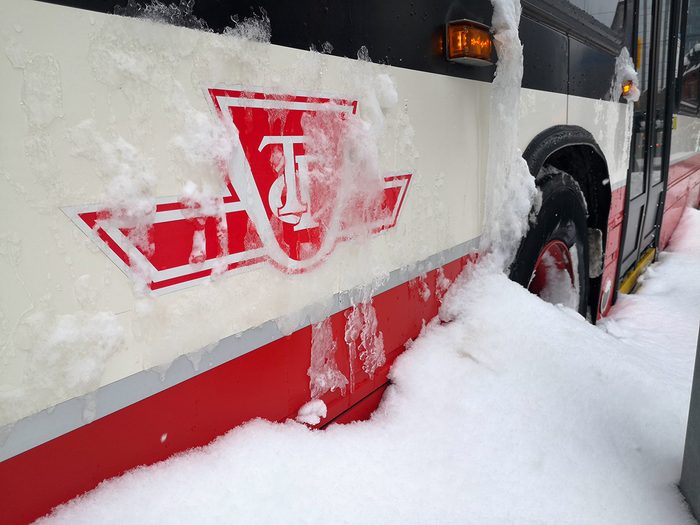
Canada truly has four seasons
However short-lived some of them may seem (stand up, summer!), most of the inhabited regions of Canada have four distinct seasons. As opposed to many other places in the world, the temperatures here vary wildly—anywhere from -40C in the winter to 40C in the summer—and it’s a surprisingly expensive endeavour to ensure you’re properly outfitted for each season. That winter coat you purchased in India before moving to Canada? It’ll be useless here. (In December 2017, daytime temperatures in Toronto were colder than the surface of Mars. Mars!) The only guarantee you’ll be able to withstand your first Canadian winter is to buy your outerwear *after* you’ve landed.
Take a look back at the worst snowstorms in Canadian history.
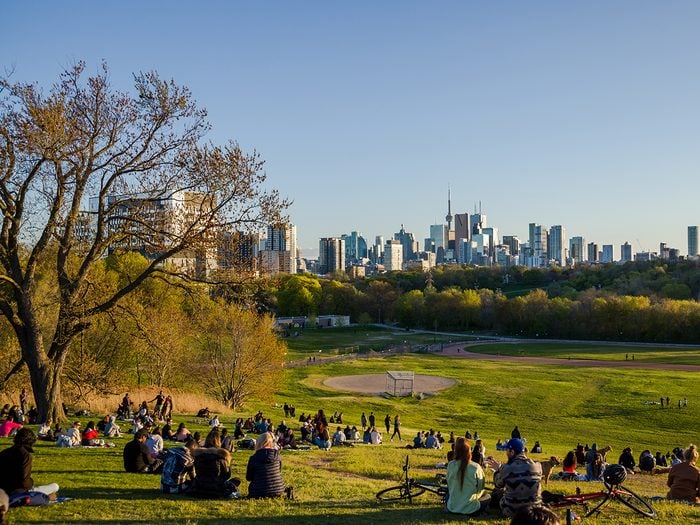
Summer is everything
With one Canadian winter under my belt, I now fully understand why everyone here flocks to patios and strips down to the bare essentials at the first sign of summer. For those of us more used to a sub-tropical climate, it may not seem warm enough to warrant shorts and sandals on the May long weekend, but trust me—Canadians have earned that right, simply for having survived another winter.
Would you believe this city is the warmest place in Canada?

The sticker price is just the starting point
Moving to Canada is costly. Granted, I moved to Toronto, which recently ousted Vancouver as the #1 most expensive place to live in Canada. From housing to shopping to eating out, everything costs more than its equivalent in India—and the amounts stated on the price tags are just the starting point. Native-born Canadians are adept at the mental calculations involved in working sales tax into the stated prices of everything they purchase. For newcomers, however, the added costs can be a shock to the system (and a strain on the purse strings).
Check out what this Maritimer wishes he’d known before moving to Montreal.
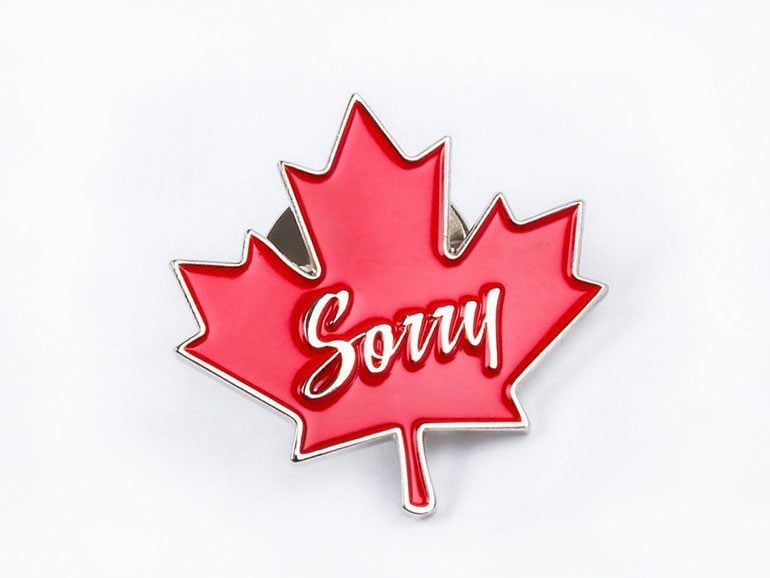
If you don’t say “sorry,” you’ll be sorry
The stereotype of Canadian politeness is as real as maple syrup is sweet. Like most things in life, however, that politeness isn’t unconditional. Learn to be liberal in your use of “sorry,” “thank you,” “may I,” “excuse me,” and “please,” and you’ll receive these courtesies in return. Unlike in many other parts of the world, these niceties don’t necessarily signal a desire to be friendly—they’re simply a social standard, indicating you see the other person as your equal. What could be more Canadian than that?
Put your knowledge of Canadian trivia to the test.

Health care is publicly funded, but not everything is “free”
After moving to Canada as a permanent resident with health care benefits, you’ll be able to see a doctor at no cost—but if you leave the appointment with a prescription, you could be left picking up the tab at the pharmacy. Likewise, dental care—which generally isn’t publicly funded—can seriously put a dent in your savings. Third-party health insurance (often provided through your employer) can help offset the often exorbitant prices Canadians pay for dental and eye care, as well as medicines.
Oh, and if you think you need antibiotics for what ails you, you’ll need to see a doctor first. Unlike in India, antibiotics aren’t available over-the-counter.
Tip: Even if you’re moving to Canada as a permanent resident, it could take several months for your health care benefits to kick in. It’s a good idea to arrive with at least six months of international health insurance as a buffer.
Here are 10 Canadian podcasts worth adding to your playlist.
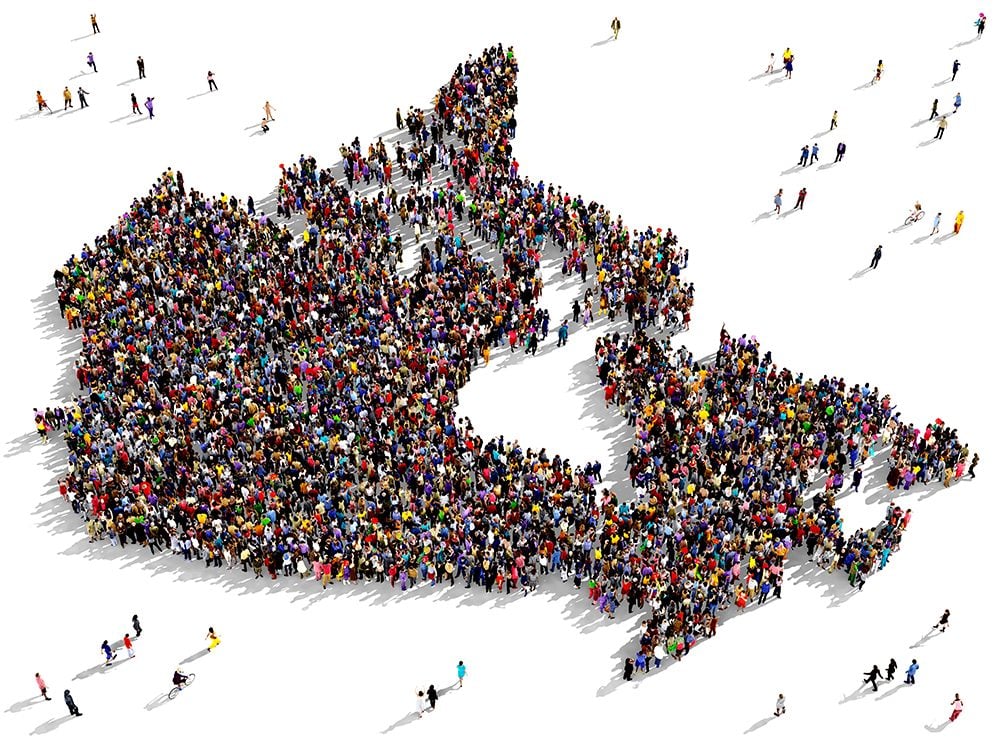
Canada really is a cultural mosaic
Take the subway in Montreal and Toronto, or the SkyTrain in Vancouver, and you’ll find yourself surrounded by people from all over the world. Multiculturalism is fundamental to the Canadian identity, and plays an important part in the country’s politics. What this means to someone moving to Canada is that you likely won’t feel the need to fit into any particular cultural mold as you might in India or the United States, for example. More than 40 of the MPs currently sitting in Canadian Parliament weren’t born in the country. Provincial governments and municipal councils make room—both logistically and financially—for the celebration of their peoples’ spectacularly diverse cultural heritages. It’s a country built on mutual respect—one of the many reasons it ranks year after year as one of the best places in the world in which to live.

Get in the habit of tipping
Tipping in Canadian restaurants, salons and taxis isn’t just appreciated, it’s expected (along with a “Thank you,” of course—see above). This may come as a shock—not to mention an additional 15 to 30% on top your bill—if you’re coming from a culture in which tipping isn’t standard practice. Just how deeply engrained is tipping in Canadian culture? Restaurant servers in some provinces make less than minimum wage, with the expectation that patrons’ tips will make up the difference.
Here are 10 iconic Canadian dishes—and the best places in the country to find them.

Picking up where you left off isn’t easy
Resuming your professional career in your new country is likely the biggest challenge you’ll face moving to Canada. No matter how extensive your qualifications and professional experience, having your credentials recognized in the Canadian marketplace is going to be difficult. Bring as much documentation (transcripts, etc.) as possible, and make as many contacts in your professional network as you can before immigrating. If you work in a highly specialized field, it could literally take years to become fully accredited to practice in Canada—a fact that (sadly) many urban cab drivers will share with you. Be prepared to put in time in a service position before you actually resume your skilled occupation, and bring more cash savings than Canada’s immigration authorities recommend—you’ll be grateful for the safety net.
Don’t miss these brilliant business tips from one of Canada’s most successful entrepreneurs.
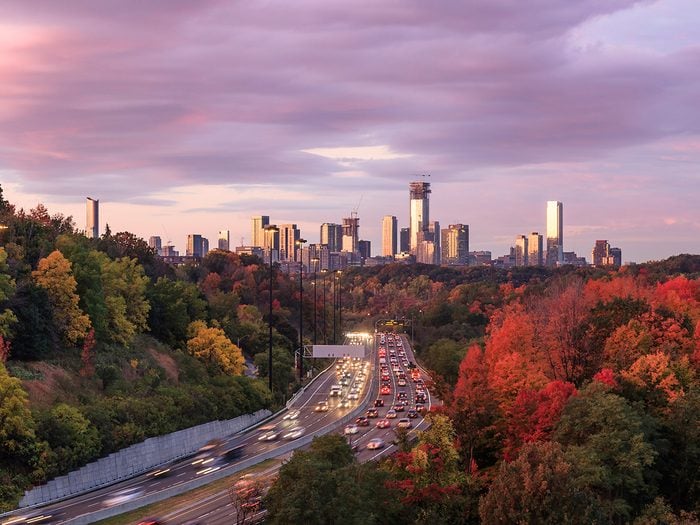
You might have to prove you’re road-worthy—again
The process for applying for a provincial driver’s licence varies depending on where you’re moving from. If you’re immigrating to Ontario from the United States, Australia, France or Korea, for example, it’s a simple exchange, as these countries have a reciprocal agreement with the province. In any case, it’s a good idea to check out your new home province’s licence equivalency requirements before moving to Canada so that you can bring any necessary documentation with you. (Where no such reciprocal agreement exists, you’ll likely be required to provide written confirmation of your foreign driving experience.)
Discover 10 great day trips from Toronto.

You’ll pay through the nose for your phone
Sad but true, Canadians pay some of the highest wireless prices in the world. Unlike other parts of the world, where pay-as-you-go or prepaid plans are commonplace, most mobile phone plans in Canada are purchased on a contract basis. This, combined with hefty telecommunication taxes, conspire to make “staying connected” a major line-item on your monthly expenses. To avoid using more data than your plan allows, make it a habit to connect to public Wi-Fi as often as possible. You’re welcome.
These great Canadian financial podcasts can help you stretch your budget.

Leave your prejudices behind
Canada is the antithesis of a class-based society. Whether you work as a street meat vendor, a teacher, or the CEO of a company, you’re entitled to the same rights and freedoms. It’s part of a larger, blanket expectation of mutual respect, regardless of race, sexual orientation or faith that Canadians enjoy: A freedom to “be” that’s incredibly liberating to anyone who’s ever found themselves persecuted or threatened in their home country.
Here’s expert advice on how to overcome prejudice and live without bias.
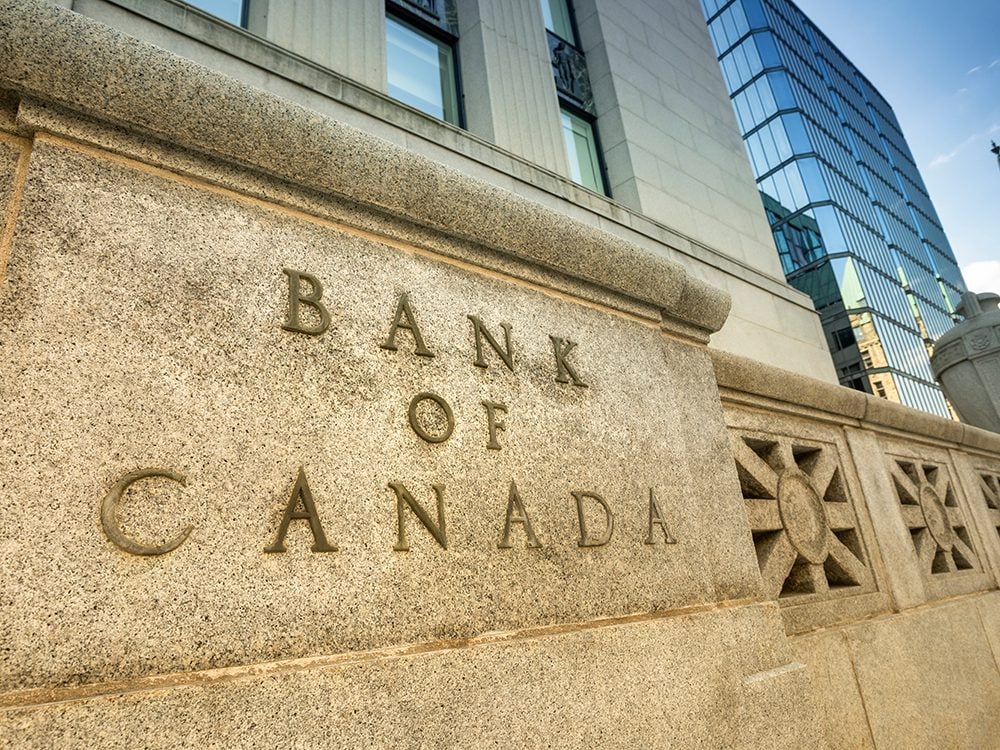
Canadian banking is bonkers
One of the things I had the hardest time wrapping my head around upon moving to Canada was the notion of paying a bank to keep my money. “Negative interest” is something that’s unheard of in India, and seems just as bizarre to a new immigrant as the requirement to possess a credit card. Nevertheless, it’s the only way to establish a credit history in Canada, and it will be essential if you ever plan to buy a house or a car.
Tip: Canadian banks often add service charges to debit transactions as a further incentive to use credit cards. This, combined with high introductory credit card limits, make it easy for newcomers to spend beyond their means and fall into debt right after moving to Canada. Consider yourself warned!
Don’t miss these pro tips to save more money.

Repairs are rare
If you wear a hole in the sole or your shoe or your toaster stops working, an Indian’s first instinct is to seek a repair. In Canada however, you’ll be hard-pressed to find a corner shop cobbler, let alone a handyperson to breathe new life into a glitchy home appliance. Even if you can find someone who specializes in repairs, the sad reality is that getting things fixed in Canada often costs as much as buying a replacement.
Culture shock works both ways! Here’s what Canadians travelling to India should know before they go.

No one likes a show-off
While being rich is never going to be unfashionable in this world, the extravagant displays of wealth that are admired in India will likely make Canadians roll their eyes. Here, being flashy doesn’t automatically earn the respect of others—in fact, it’s much more inclined to come off as bragging. It’s not to say Canadians don’t dream of wealth or find it motivating; they just tend to be more modest about it—a fact which dovetails nicely into my next observation…

Canadians might be more private than you’re used to
While Canadians have a (well-earned) reputation for being friendly and polite, immigrants from India often find them to be very private—almost withdrawn—in comparison. Even amongst friends, there’s a level of formality between Canadians that takes some getting used to. The social conventions Indians take for granted—showing up at a friend’s house to hang at a moment’s notice, insisting guests eat your home-cooked food, and being incredibly open about personal details—may be considered rude and overbearing here. Be patient, and remember that the hallmarks of a good friendship are relative: just as the weather and geography in Canada is different, the emotional landscape is different as well.
Now that you know what it’s like moving to Canada, brush up on these mind-boggling facts about Canada.